“It's an adjustment after the novelty of retirement wears off."
The cooling misters are on at Stonewall Gardens Assisted Living to keep the residents comfortable in the desert heat as we discuss aging, and that’s when Bunny starts telling it like it is. At 75, Parkinson’s disease has started to affect his knees, thighs, and vocal cords; he speaks softly and zips around in a motorized wheelchair. He and his partner, José, have been here a few months.
The term “assisted living,” for most, conjures images of ailing grandparents, fluorescent lighting, and a clinical smell that’s all too easy to recognize. Popular thought is that this stage of life is hard and scary, but when it comes to getting older, José, 45, has a sunny outlook. “People think you start to lose your life, but really, you live it more.”
“Oh, you just wait,” Callista, 74, counters. She’s Stonewall’s only transgender resident and currently looking for a 6’4” lesbian (if you know anyone).

Open, bright, and nestled gently in the shadow of the San Jacinto mountains of Palm Springs, Stonewall’s not your typical senior community. It’s the only operating LGBT-friendly assisted living facility in Southern California (and, as of our visit, the US). Dick B. has been a resident since it opened in early 2015. “I liked the idea of coming out of your room and being outside, not walking down a long hallway. That made such a big difference.”
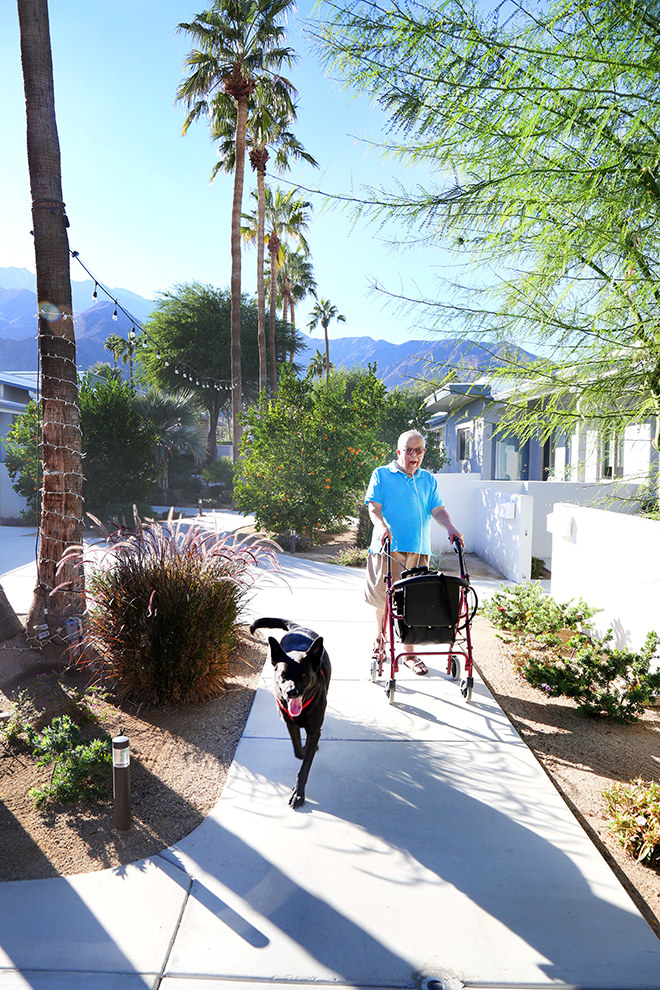
That, and Jet. A handsome black Lab mix, Jet never strays too far from Dick. And though we never see him, there’s also a cat in this trio named Gus. Our visit falls on the weekend of Veterans Day, and there’s much to be grateful for. Dick served in the Korean War, and he’s not alone. Roger, 57, shares tidbits from his career working as a production manager in Hollywood and then as a government consultant. He never reveals his secrets, but we suspect there are many. Callista joins in and regales us with (no longer classified) stories of serving on base in South Dakota. Dick S. also served in the Korean War and sits quietly, absorbing the conversation, only interrupting to reminisce about his time as a firefighter in Los Angeles or to let out a hearty laugh here and there. When we ask how long he’s been at Stonewall, he can’t recall. But that’s OK.
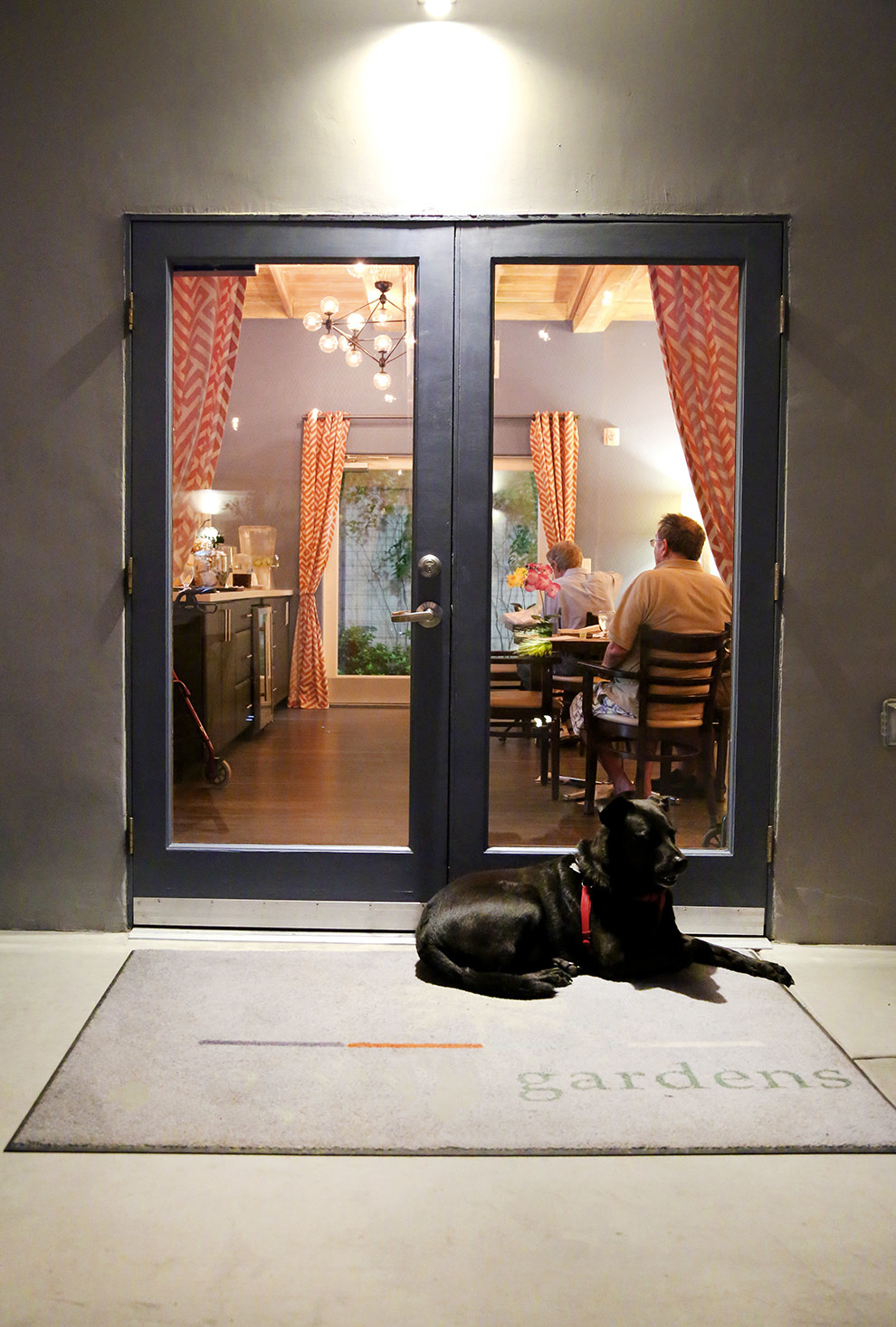
“We have trouble remembering things,” Roger and Callista both admit later when we’re on the Palm Springs BUZZ, a trolley–bus hybrid that loops the downtown area every 15 minutes. The full trip takes about an hour, and the residents are encouraged to use the free transit system to their advantage whenever they need to go shopping, pick up things in town, or just get a change of scenery. This is where Callista also admits “first your knees go, and then your memory, but at least you start to forget you’re in pain.” According to Bunny, “that's when doctors REALLY start to pay attention to you.” Have we mentioned how funny this group is?
On the second morning of our visit, we become honorary members of the 11 a.m. Walking Club. Together with Rusty, a former volunteer turned employee, we join the group for an hour-long saunter in the surrounding area. We cross some tricky intersections, possibly break a jaywalking law or two, and cut through the parking lot of a favorite restaurant. Unsteady on her feet, Callista uses a cane. Over the course of our stroll, she brushes off every potential trip with the lighthearted mantra “I don’t fall until I fall.” (To date, she hasn’t.)
Falls, injuries, memory loss, isolation, and illness are often key determining factors for individuals and families when it comes to considering and discussing long-term planning. For many, the topic is overwhelming with much to consider: logistics, expenses, and emotions, not to mention the different personalities and opinions of those involved. But being at Stonewall has opened our eyes to the fact that there are tools and resources that can help with the transition. And plenty of options. Stonewall, like most assisted living facilities, offers private apartments, on-site caregiving, meals, housekeeping, and help with medicine and other aspects of everyday life, including the opportunity to feel like a part of a community.
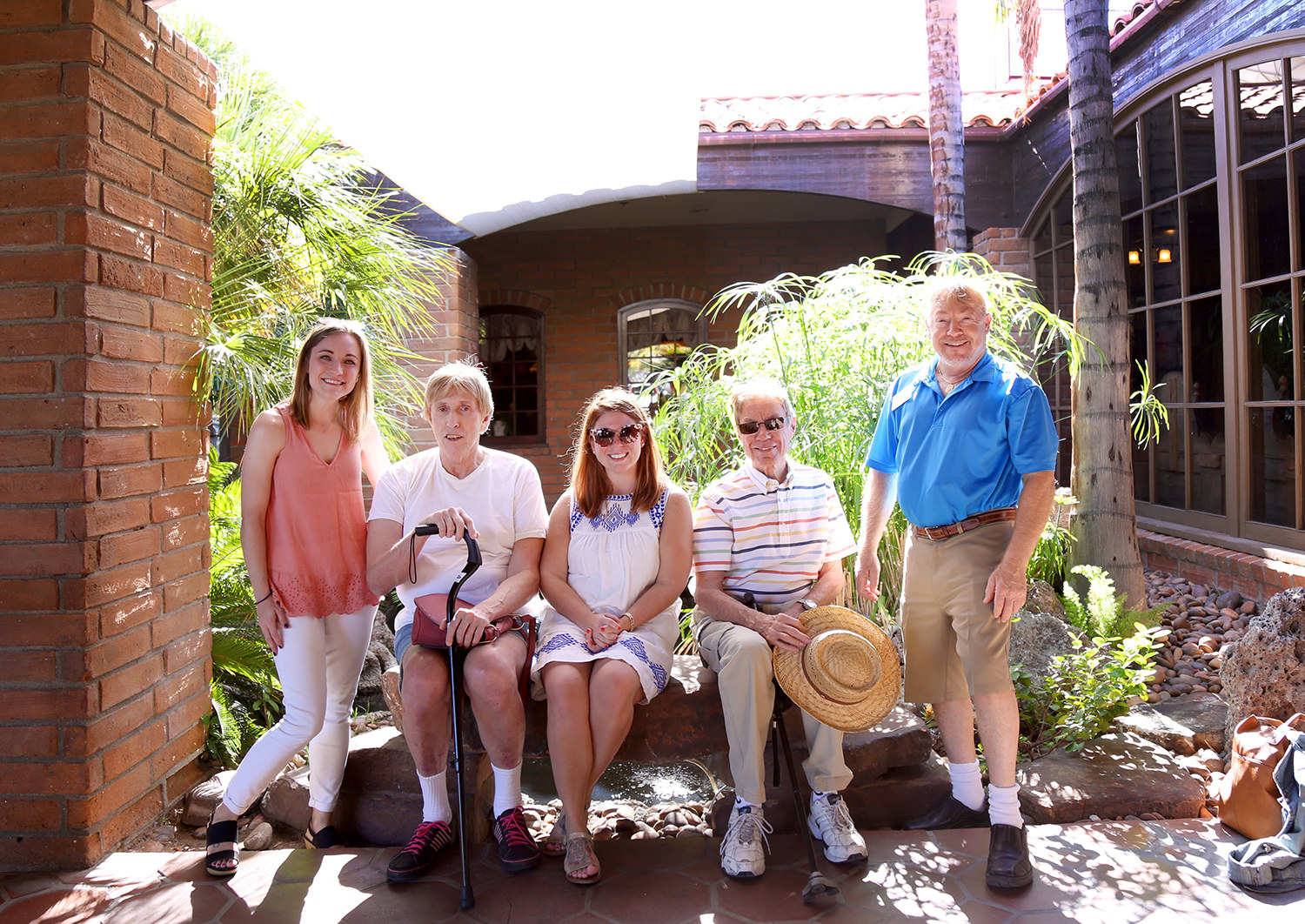
Arnie, another Stonewall resident, moved in two weeks ago after losing his partner of 61 years seven months ago. Close friends took notice that their fabulous father figure, usually a very active social butterfly, had become despondent. They could sense his helplessness. “I met my husband when I was 28, and he completely spoiled me. [After he died], I literally knew how to do nothing. My biggest fear — my entire life — was being alone, and then I was. I lost my sense of purpose.” Arnie’s friends urged him to consider moving into assisted living. Initially, he was resistant to the idea but agreed to visit Stonewall with his friends because of its inclusiveness and proximity to their home (they live within driving distance). After their visit, he consented to giving it a shot for at least three months.
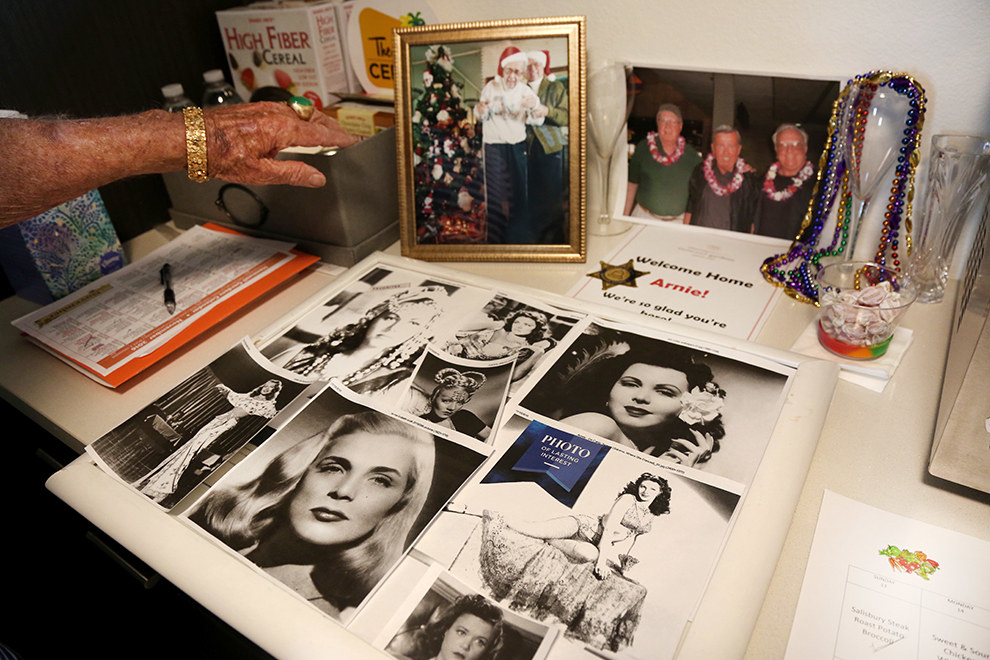
When we first spotted him bringing in boxes, a framed photo of Shirley Temple was tucked under Arnie’s right arm. He once had the largest collection of Jane Powell memorabilia in the country, which was donated to a local museum as a result of the move and will soon go on display. “Was it hard to downsize?” we asked. “Oh, yes. But I call this my little Hollywood cottage.” Callista and Don had a similar sentiment. Callista’s daughter led the charge when it came to adding things to the “toss” and “keep” piles, while Don had to realistically think about what could fit and be displayed in his new abode. He proudly shows off his artwork on walls that staff has helped him hang, but after six months, boxes of treasures and memories still line the walls, waiting for permanence.
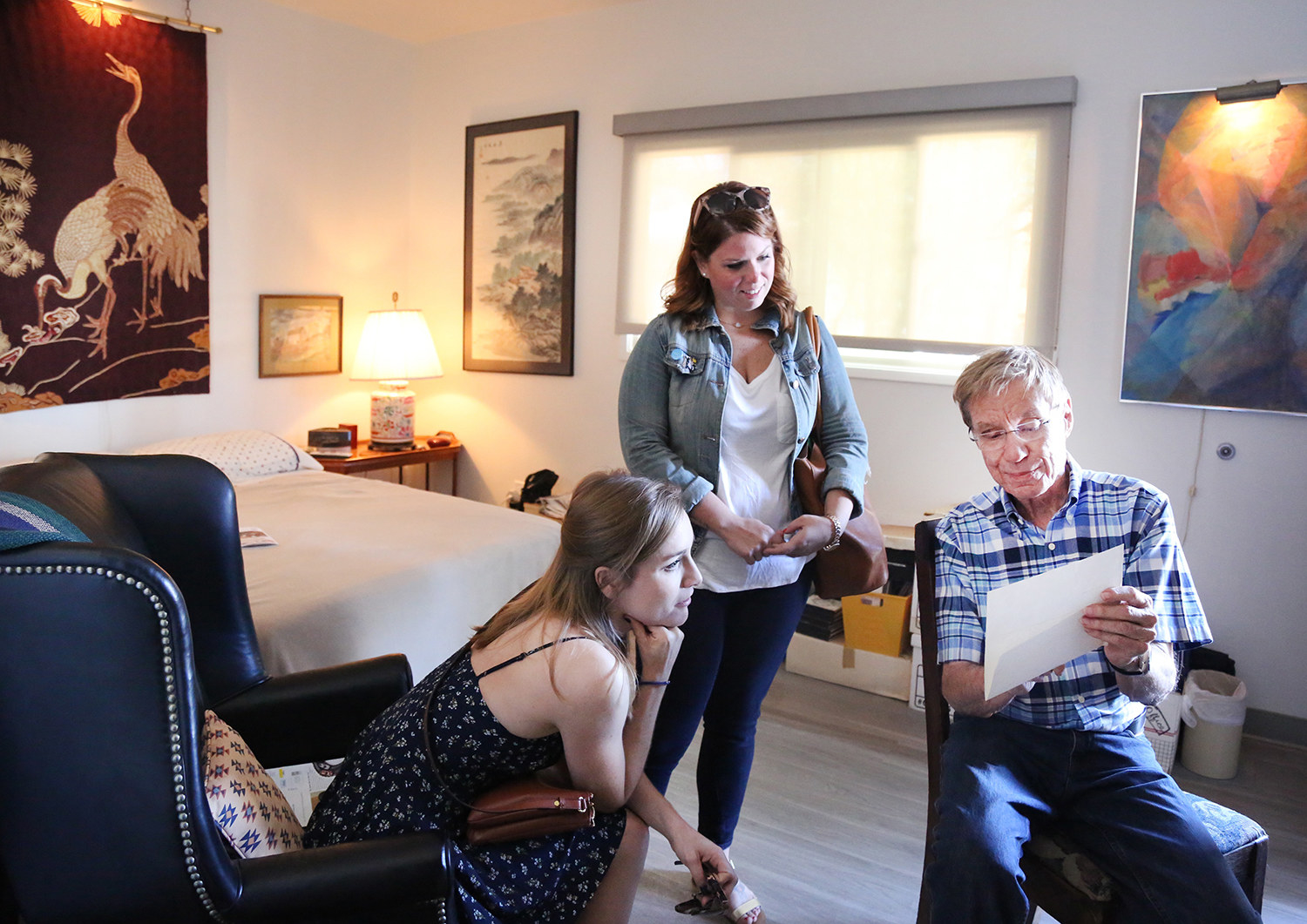

Although the occasional disagreement breaks out in the dining room — “Turn the volume down!” “But I can’t hear it!” — there’s something about this place that’s cheerfully reminiscent of a college dorm. In Room 20, a California driver handbook lies open on a desk. Paragraphs are highlighted, sentences underlined, showing pages worn with anxiety. Don is turning 74 in two weeks and has been studying up so he can retain his license.
“That was the big decision for me,” Callista noted. With her most recent birthday drawing near, she was torn about whether or not to renew her license. Ultimately, she decided against it. Similarly, deciding whether or not to keep his car was a struggle for Jim, 77. After suffering symptoms similar to Parkinson’s and a few falls, he worried he might really hurt himself. So he stayed behind in the Midwest while his sister and brother-in-law visited Stonewall. Afterward, they urged him to relocate. For a while after his move, he held onto his car, hesitant to let it go despite his family encouraging him to do otherwise. For him, it wasn’t so much the car he needed as it was the freedom it represented. But eventually, he realized it was an additional expense he didn't need. For some residents, not having a car — like many other aspects of assisted living — is freeing.
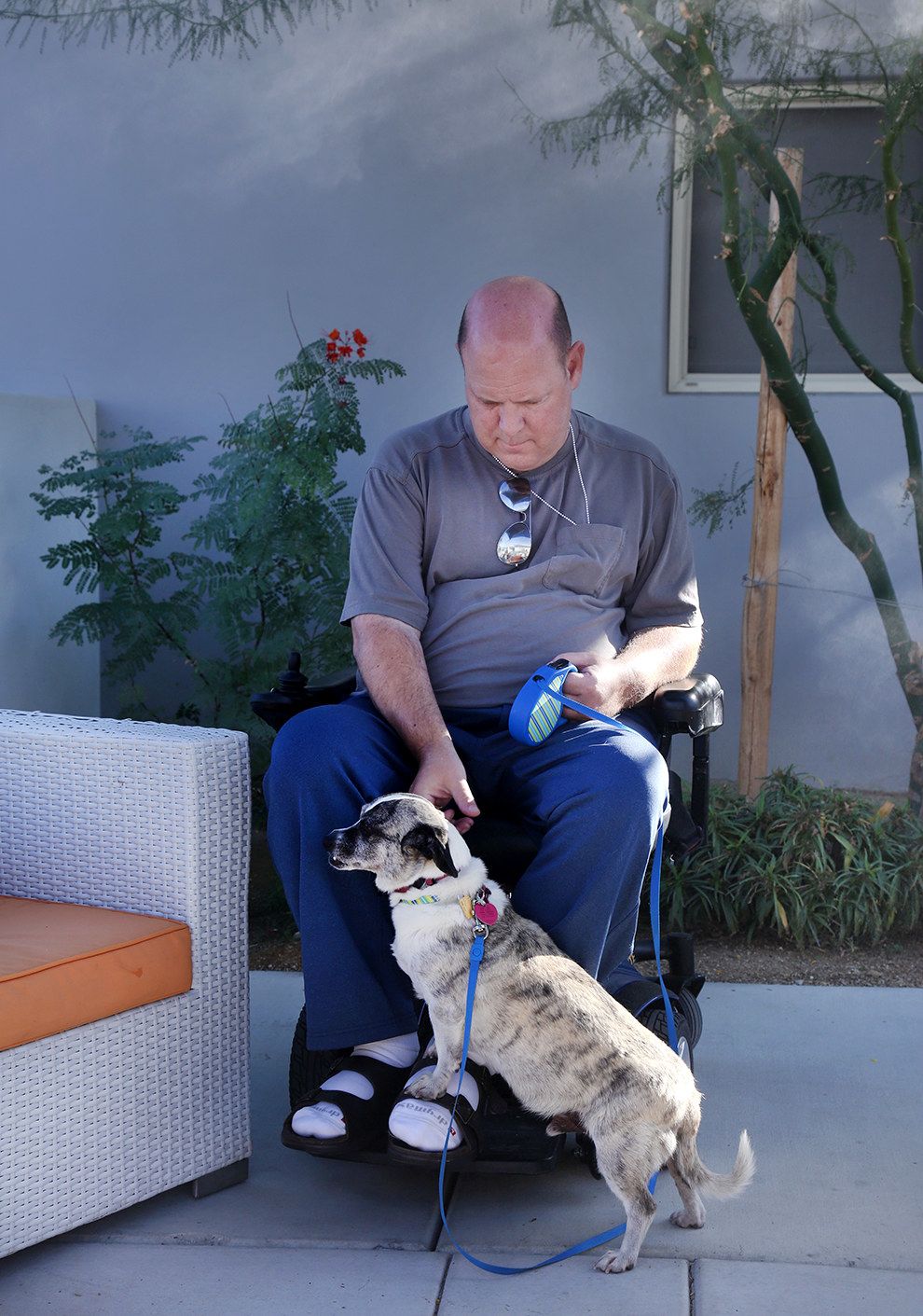
After eight years of in-home care and two years at another facility, Matt has been at Stonewall for exactly 365 days. He’s only 50 but qualifies as an adult dependent under the RCFE (Residential Care for the Elderly) license. Relaxed on his patio with his adorably menacing dog, Dennis, rubbing against our legs, begging to be pet, Matt explained, “No one was rude or overtly discriminatory at the other facility, but I felt it subtly.” There seems to be an unfortunate growing concern in the aging LGBT community where people feel as if they have to stick their toes back in the closet due to the conservative mentality of some fellow residents. Here, Matt is unapologetically himself and an advocate for other residents. Operating under Title 22, Stonewall is required by law to have a resident council, and Matt is the president. He’s the one who brings big requests to the staff, like the need for ADA-compliant motorized doors, or when it’s time for a menu change because residents have had enough with the corn. A former monk, he’s definitely a contender for sainthood.
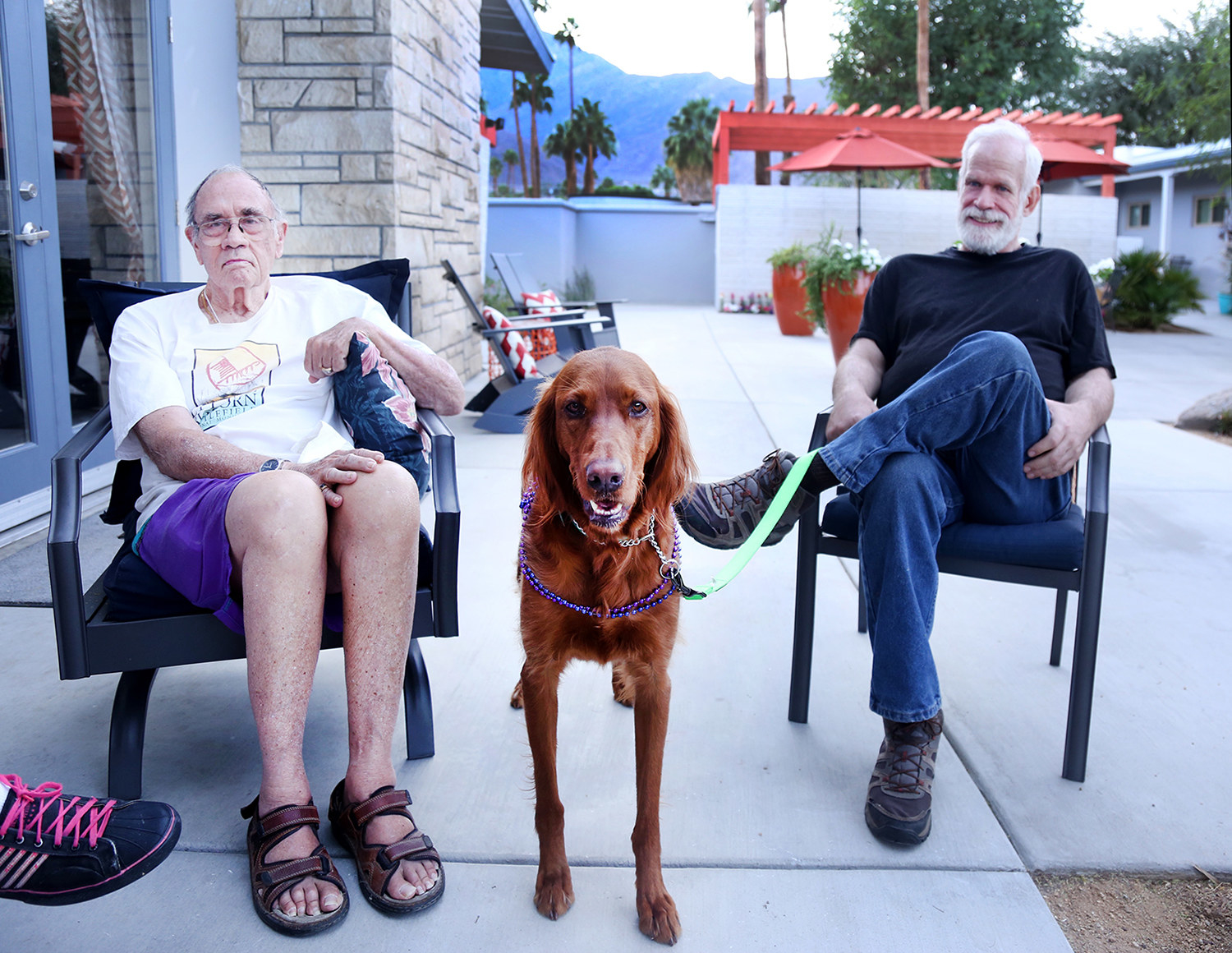
At just 57, Roger is also on the younger side. He’s here on respite care following a traumatic brain injury several months ago. “At first, the prognosis really wasn’t good,” he tell us as Maggie, his gorgeous Irish Setter, rests patiently at his feet. But he’s getting better, walking entirely on his own and talking with us regularly, sharing outlandish stories and occasionally trying to get a rise out of the other residents. He describes himself as a troublemaker, and after hearing only a handful of his stories, we believe it.
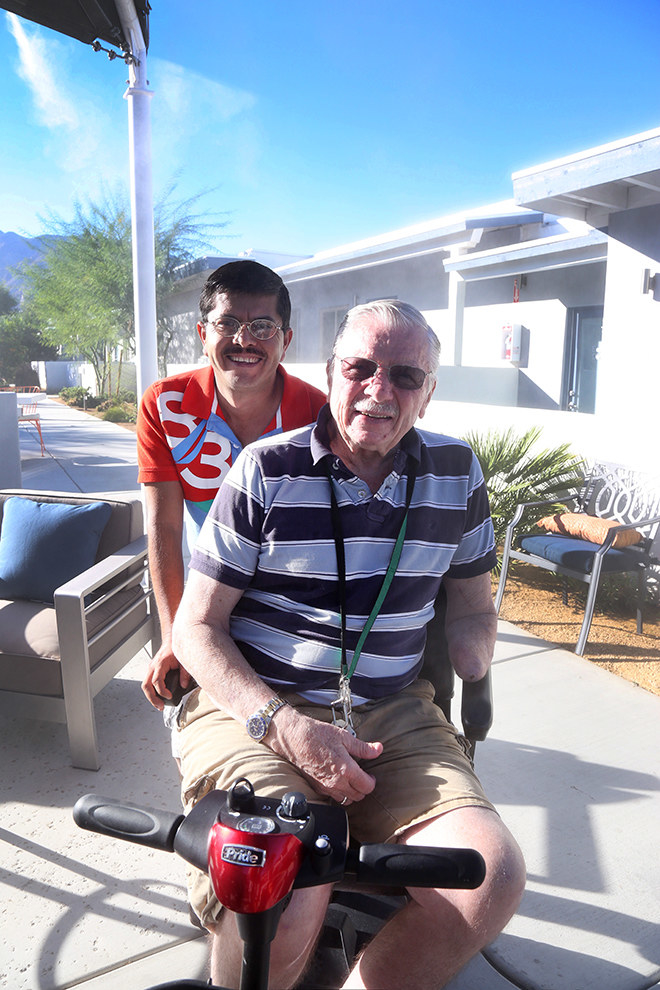
We start talking about aging while admiring the view. José and Bunny sit next to us, joining in on our conversation. Every now and then, José encourages Bunny to sit up straight, take a deep breath, and use his voice. “If he doesn’t use his vocal chords, they’ll get weaker,” he explains. Bunny and José met at a bar in Oregon and have been married for four years. José didn’t shy away from Bunny's diagnosis at 67, and the two shared a life together in Oregon before Bunny suffered an injury last year and needed respite care. He came to a different facility in Palm Springs, but eventually José, who had stayed behind in Oregon, noticed Bunny was down in the dumps.
“The worst part of being old is depression,” Callista puts it bluntly, then clarifies: “When you're retired and don't want to get out of bed, you don't have to!”
So José said goodbye to his life in Oregon and relocated so he and Bunny could live here at Stonewall together permanently. Word of mouth brought them here, and while José is in good health and here as a supportive partner, he feels welcome and like he’s a part of the community. And that’s just fine with him! He adds that he’s always been drawn to older crowds because “they really listen.” They’re not just waiting for their chance to speak. Plus, “if they don’t have white hair and a white mustache, I’m not interested,” he says with a smile on his face.
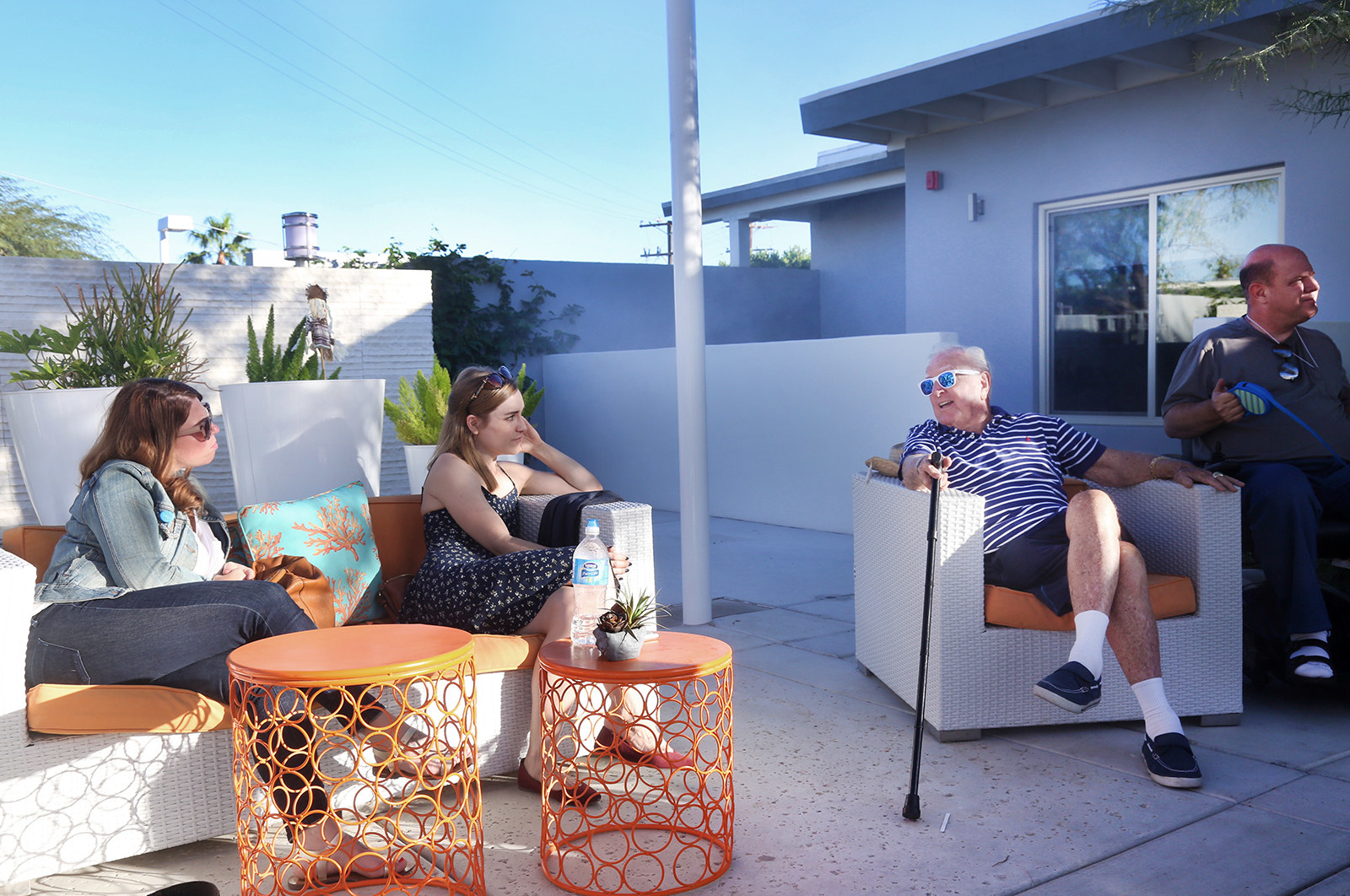
At 4 p.m. on Sunday, we trot to the bar next door and sit down for a round of drinks. It’s the one activity no one dawdles to, and our aging motley crew flocks in happily. We force a few tables together and share some snack mix, and even if no one is talking (maybe because we’re all distracted by the flashy music videos on the screens above us), we’re still together. And that’s the thing — a place like this pushes you out of your comfort zone by encouraging socialization. Bunny tells us, “Even if you don't want to talk to people, you talk to people.” Stonewall is filled with the regained companionship that some have lost or never had. It’s the sleepaway camp you don’t have to pack your suitcases for once Labor Day rolls around.
After a few conversations with us, Arnie says he now has no plans to leave.
“I can tell I’m going to like it very much already," he says. "I have purpose again.”

If it’s time to discuss long term-care for yourself or your parents, know that there are resources and options available. In terms of protective underwear, the best of those options is easy to find. Just look for the Dri-Fit™ logo on store-brand incontinence products.
